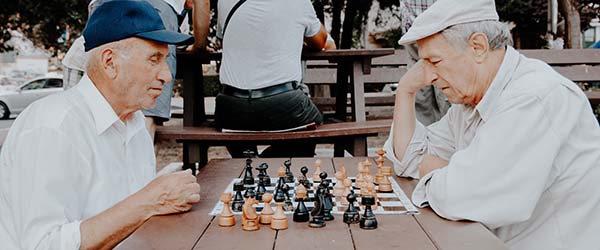
It is never too late to help your aging loved one focus on their cognitive health and improve their brain function.While its certainly true that age plays a major role in thedecline of memory and other cognitive abilities, studies show there are proven ways to work on maintaining and enhancing these capabilities at any age.If youre looking for opportunities to help the senior in your life focus on this important aspect of their overall health, take advantage of the following tips and information.Cognitive Health 101It was once believed that the brains ability to learn and grow was hardwired and finite, but more recent studies and research reveal thatthe brain can continue to change, reorganize and create new pathways.Essentially, it is becoming more evident that the human brain can adapt and stay sharp well past the formative years.
To realize the full benefits of neuroplasticity, however, one must practice using their brain.The U.S.Department of Health and Human ServicesNational Institute on Aging (NIH)explains that cognitive health, or the ability to think, learn and remember, is an important component of brain health.Scientists believe that certain stimulating activities may protect the brain by establishing a cognitive reserve.
This means that they can enable the brain to become more adaptable in some mental functions, compensating for age-related brain changes and health conditions that affect the brain.Optimizing NeuroplasticityTo support your aging loved one in optimizing their brain health and positively impacting neuroplasticity, it is important to encourage them to engage their mind with cognitive stimulation.The most effective opportunities to introduce this kind of mental exercise into their everyday lives include ones that focus on the following elements:Attention: strengthening, for example, sustained, selective, visual or auditory attentionPerception: improving or developing visual, auditory and tactile perceptionMemory: counterbalancing the deterioration of long- and short-term memory as a result of age or injuryProcessing speed: maximizing the capability to process information quickly, without losing efficacyReasoning: protecting the superior cognitive functions (numerical, logical and abstract reasoning) that help one think and make decisions in the face of stimuli, events, and situationsGames and strategies that focus on these specific areas of maintaining and improving the cognitive capabilities of older adults are key to promoting mental health for seniors.6 Worthwhile Games and Exercises for Cognitive StimulationTo keep your aging loved ones brain active and healthy, here are some valuable activities you can work into their daily or weekly routine: These help seniors stretch their mental muscles and stimulate their brain function.Completing a puzzle alone or together can help the senior in your life practice problem-solving functions, look for patterns and pay attention to details.
There are a range of options spanning from traditional jigsaw puzzles to crossword puzzles, word searches, and memory games.These are especially helpful for seniors who want to exercise their recall skills and engage with family or friends.Games of trivia encourage seniors to recall past events or facts they have learned throughout their lives.
Consider playing a general trivia game, or try one that covers specific categories like TV shows, movies, religion, pop culture, music or particular periods in time.This is a game that focuses on numeric patterns and is accessible in a variety of difficulty levels.Sudoku can be found in print form or on a handheld digital device.
Lots of games played with a deck or more of cards give seniors the chance to stimulate their brains in a fun and engaging way.You could also suggest some strategic games like chess or checkers, which require players to use reasoning for choosing their next move, anticipating the moves of opponents and developing an overall strategy.Today, there is a seemingly limitless array of downloadable cognitive applications that can be used on a mobile phone, tablet or personal computer.
Look for options that allow you to choose or adjust the level of complexity and hone in on specific cognitive capabilities, like attention, reasoning, language, and memory.6.Crafts & Hobbies: TheNIHindicates that people who engage in meaningful activities and hobbies say they feel happier and healthier and that learning new skills may improve thinking ability.One study, in particular, found that older adults who learned quilting or digital photography, for example, had more memory improvement than those who only socialized or did less cognitively demanding activities.Supporting Seniors Through EngagementThe cognitive games and exercises recommended above allow seniors to not only maintain and improve their brain health but also overcome boredom or loneliness and engage in personal interactions.
Whether your aging loved one lives alone, with you or inan assisted living community, its important to support them in participating in activities like these.If a senior in your life is experiencing any type of memory loss or cognitive deterioration, be sure tocheck out this informative guide on understanding their experience and developing the best care plan for them.If you're a caregiver exploring senior living options for your loved one, or perhaps lookinginto the possibility of making a move to anassisted living communityyourself, then this guide was written with you in mind!
Publisher: Assisted & Independent ( Read More )

